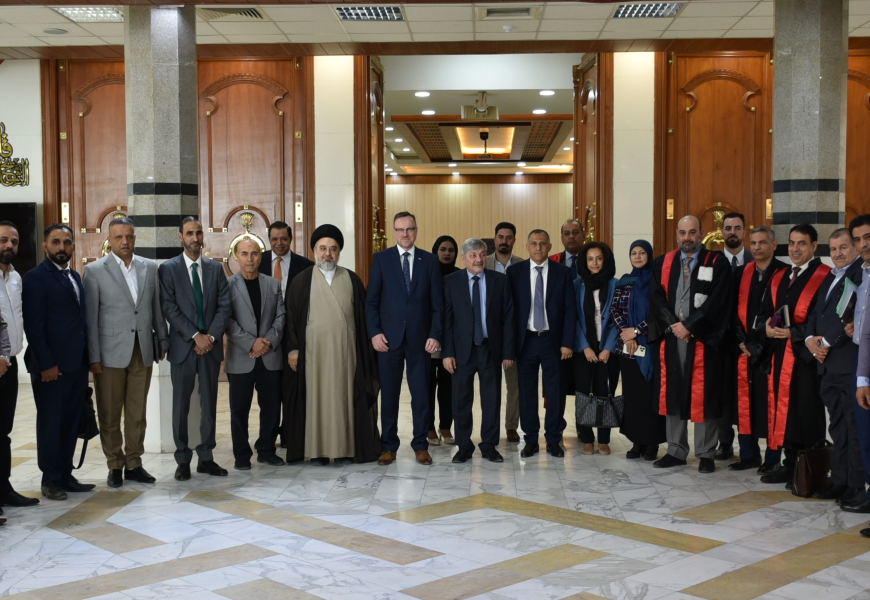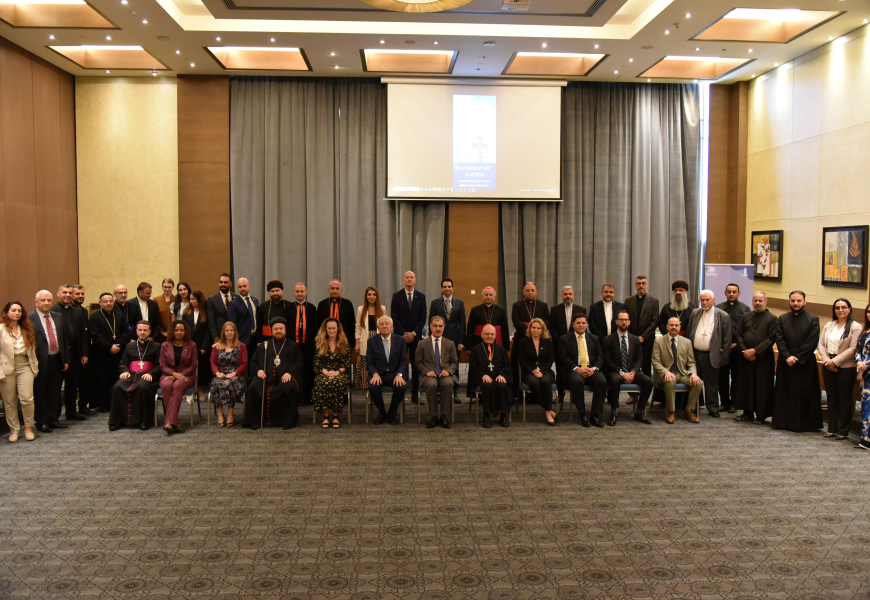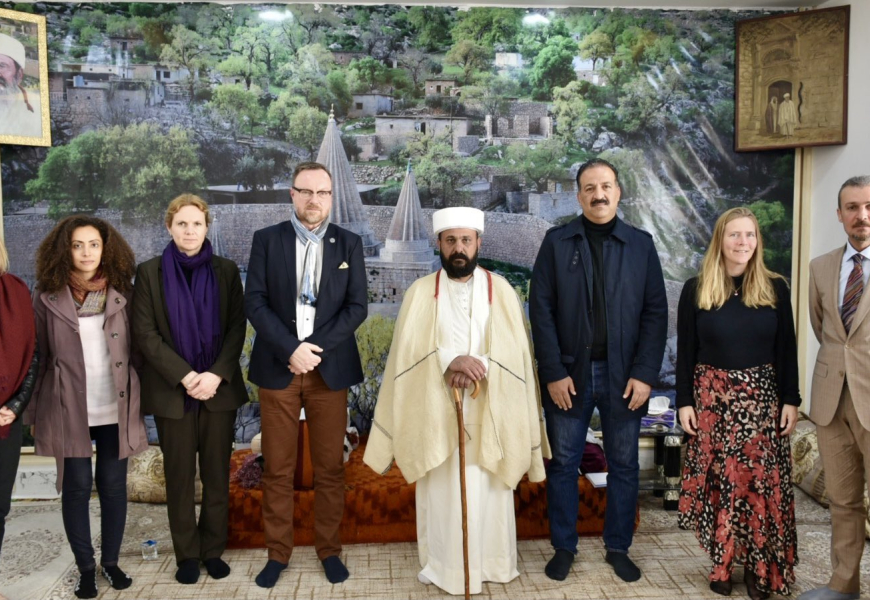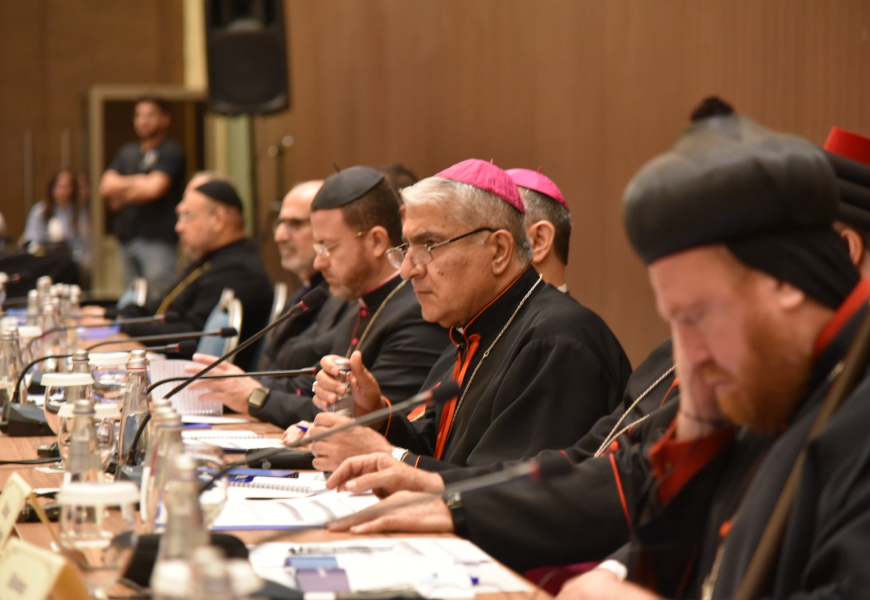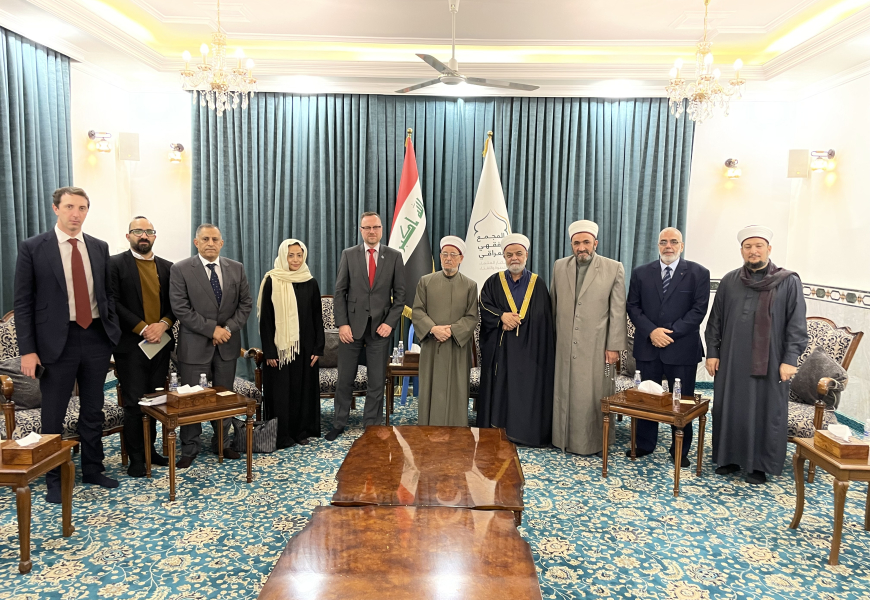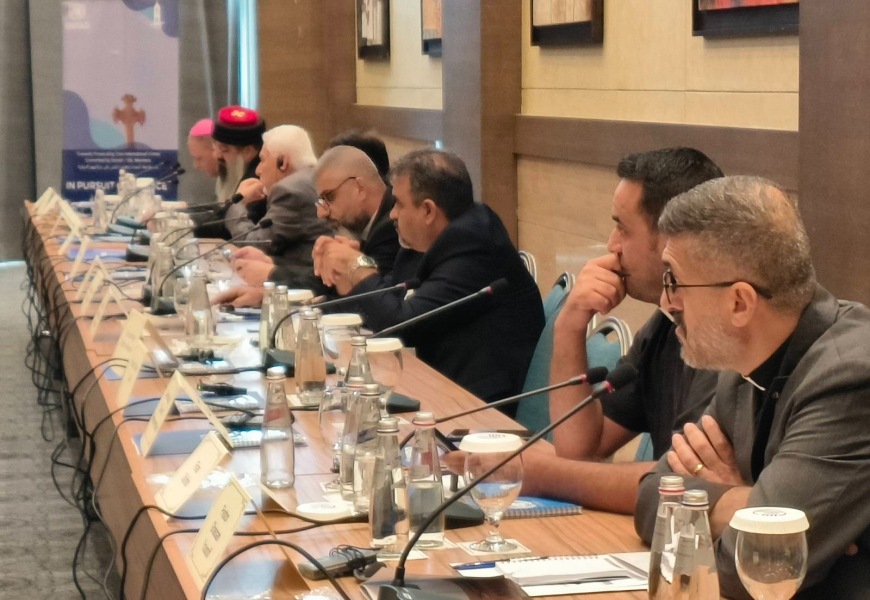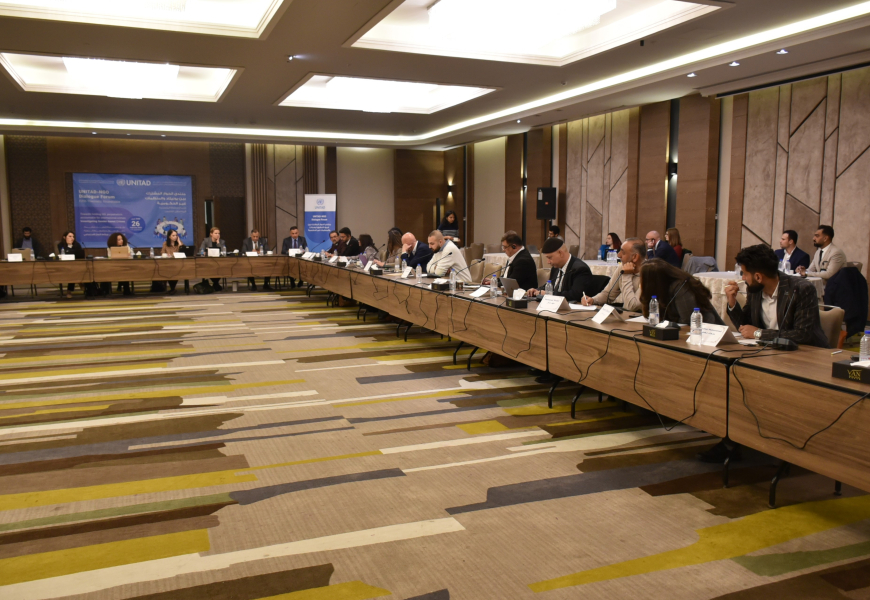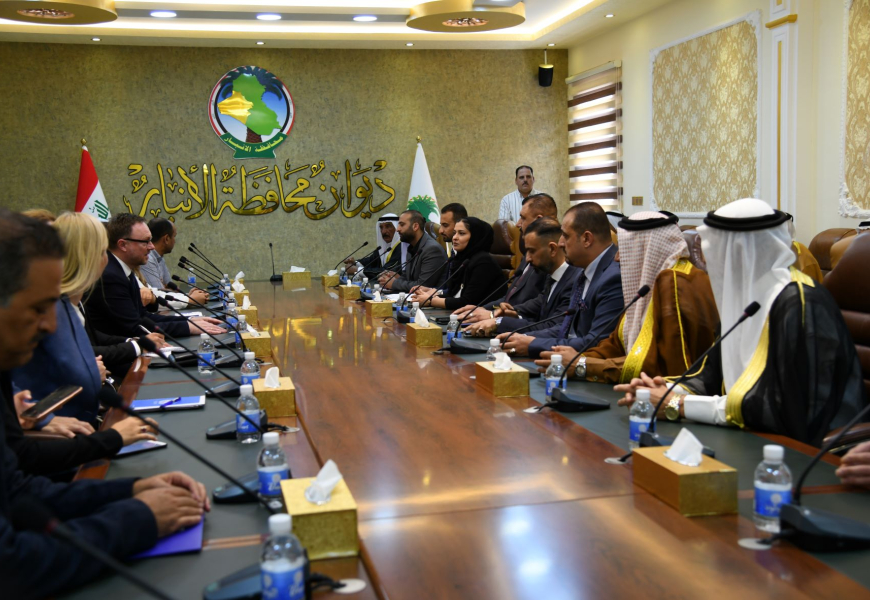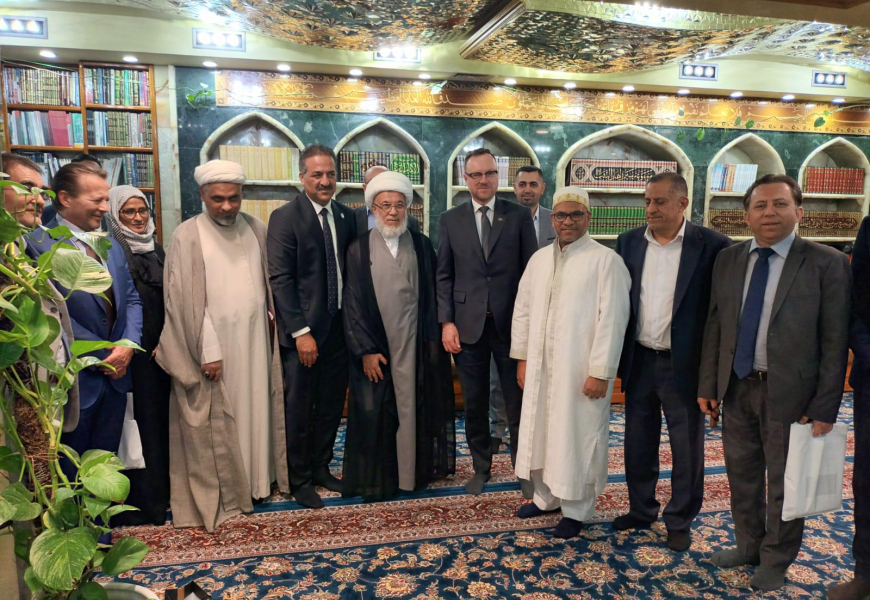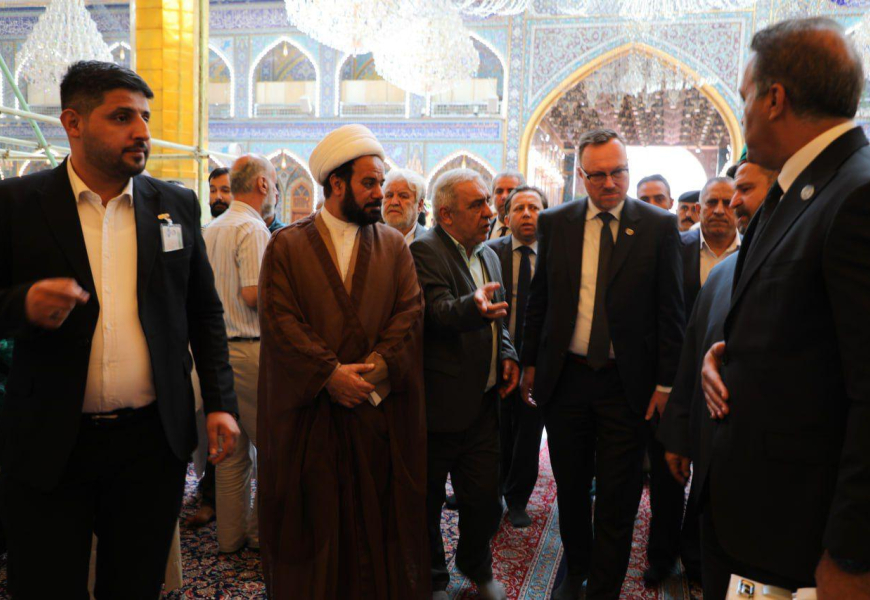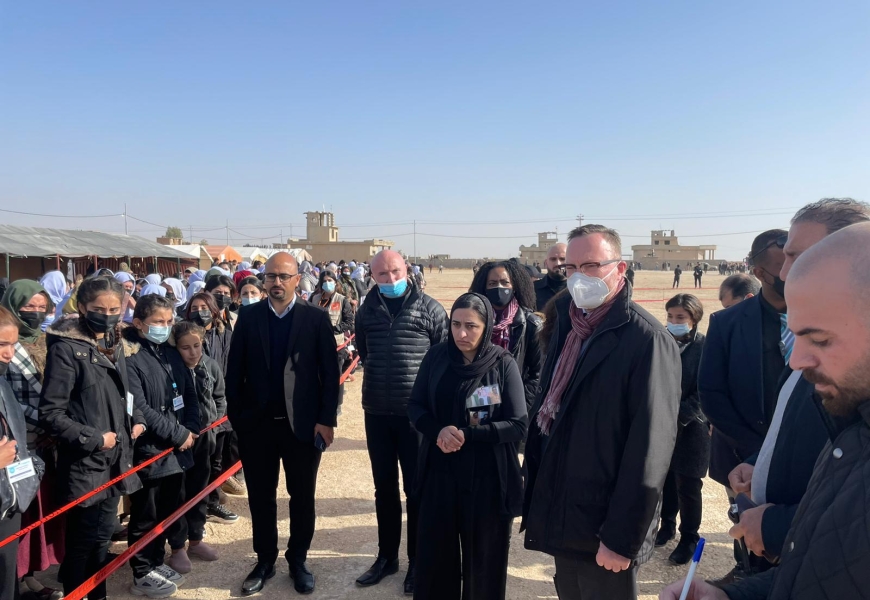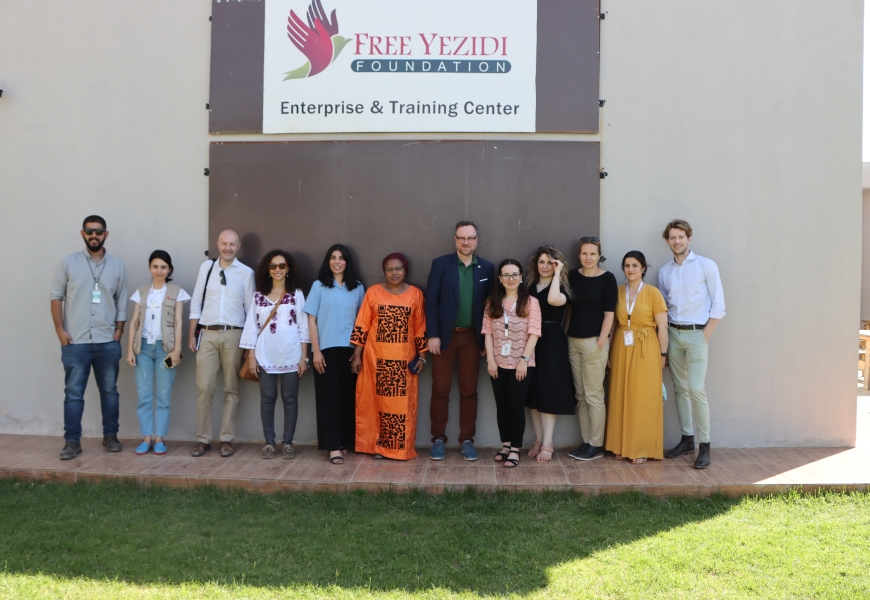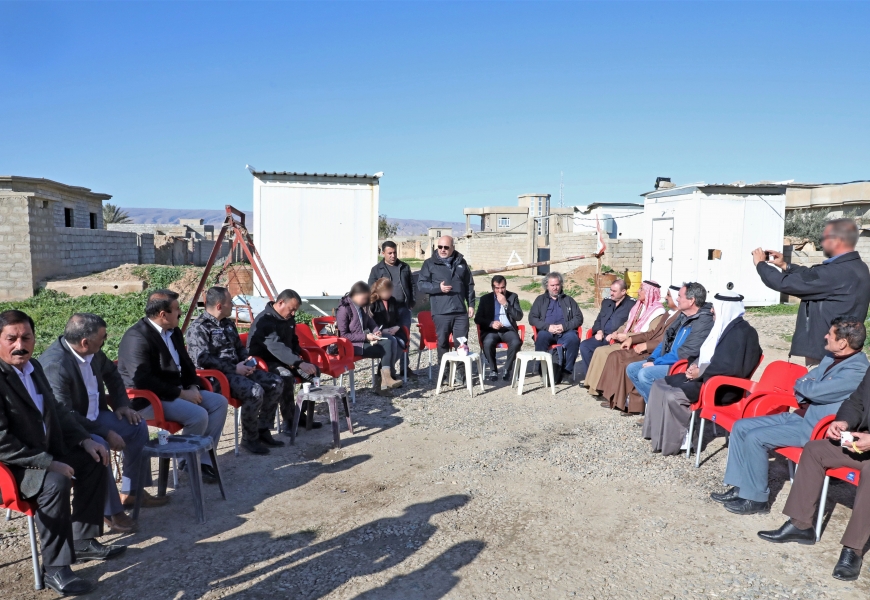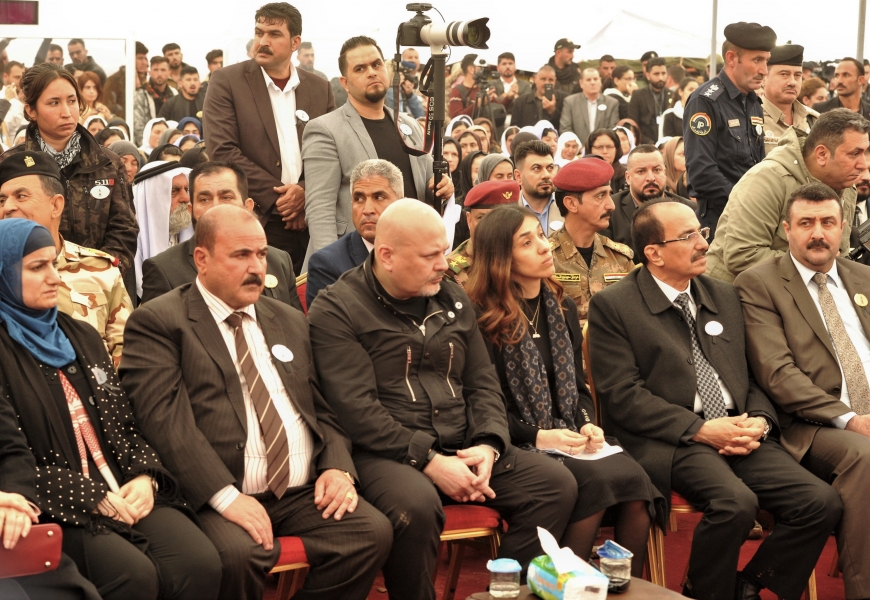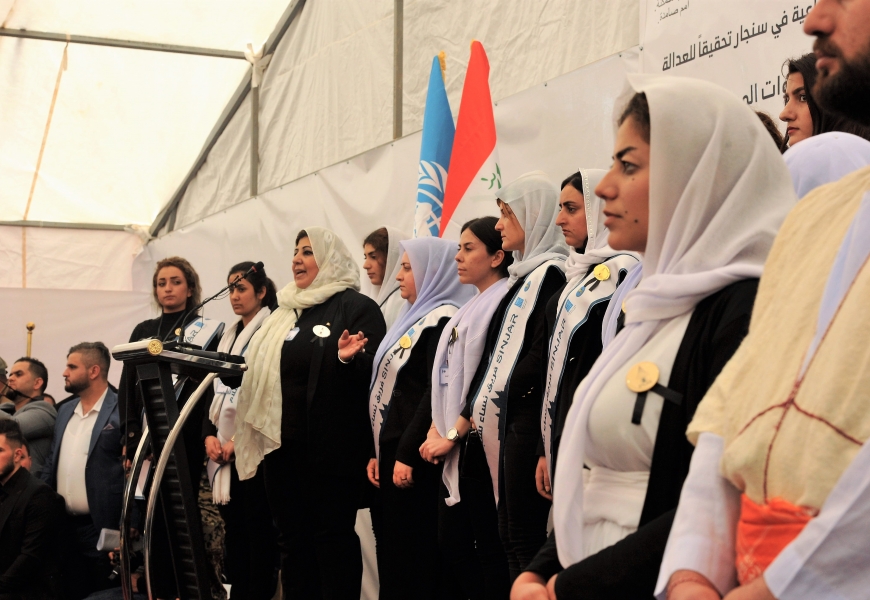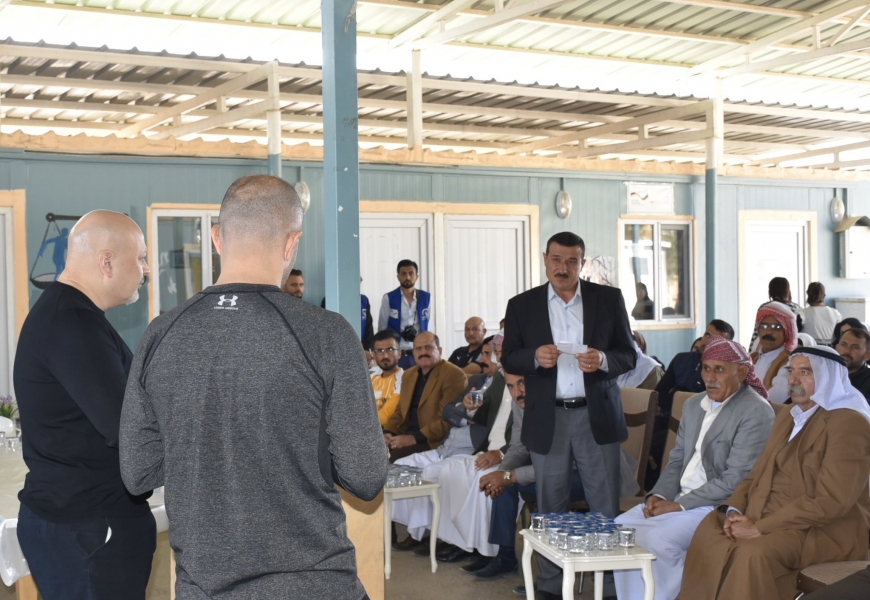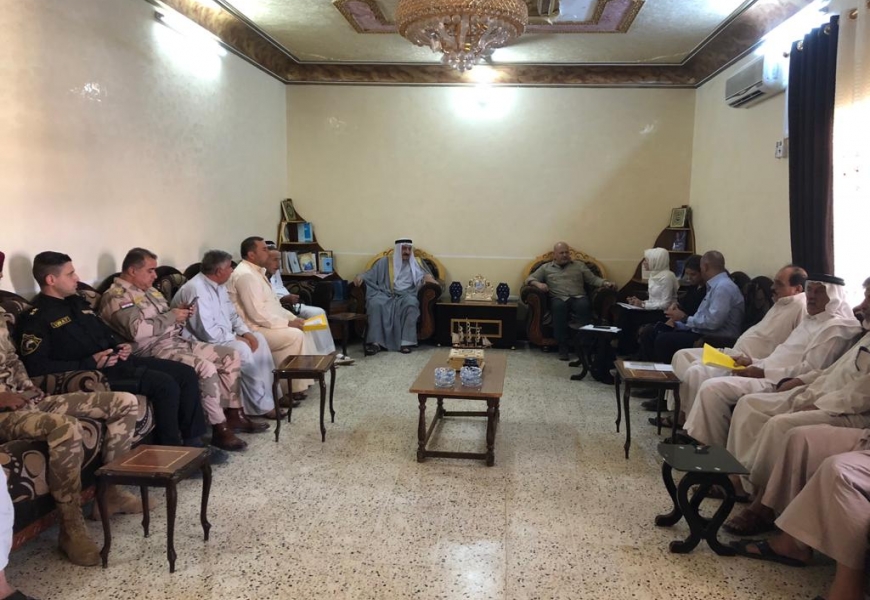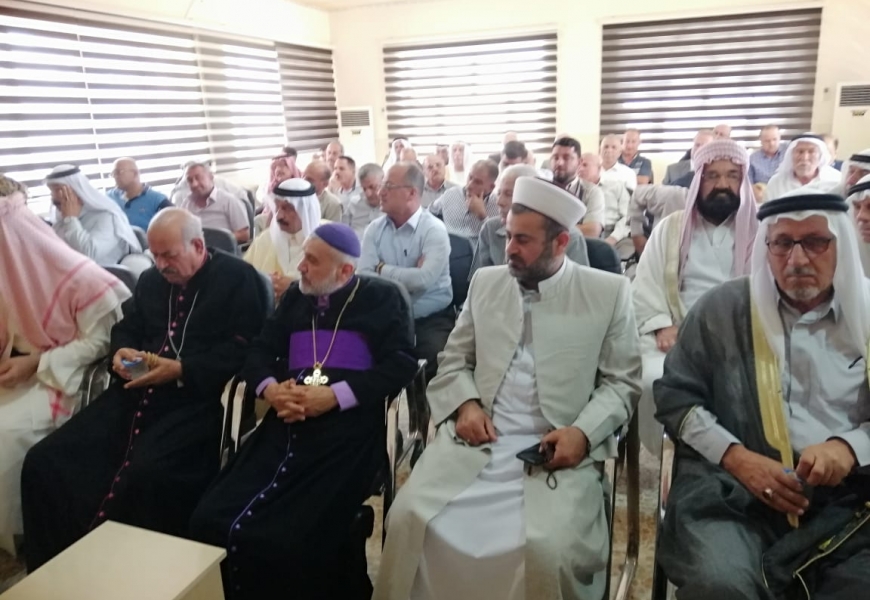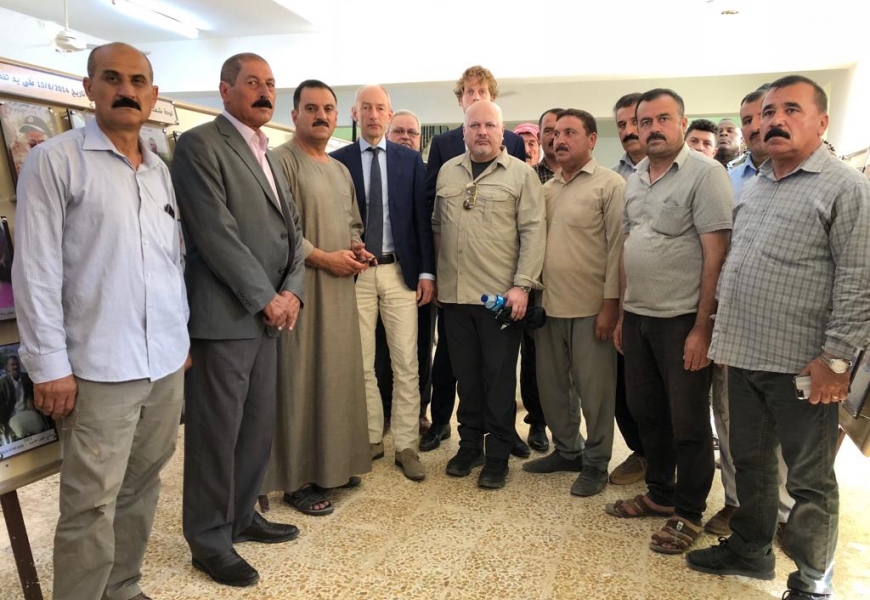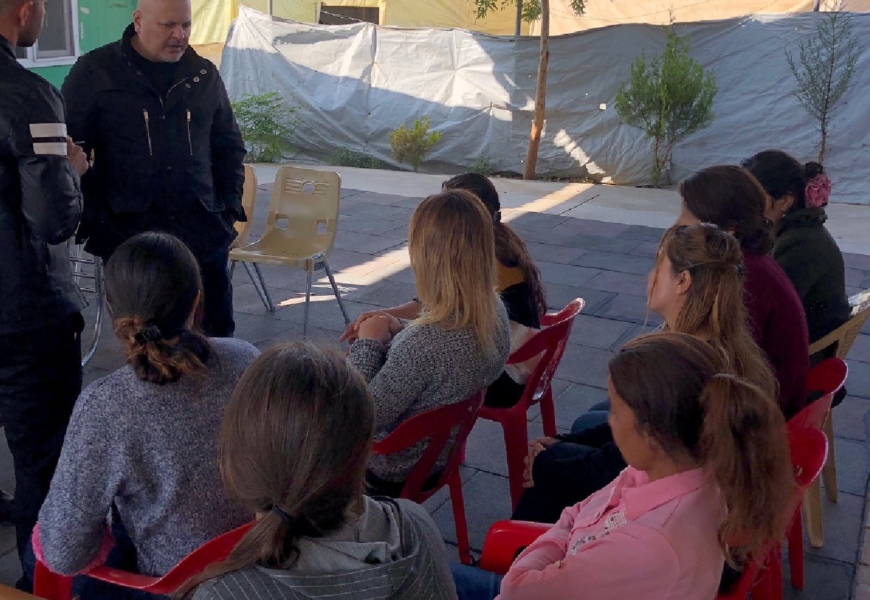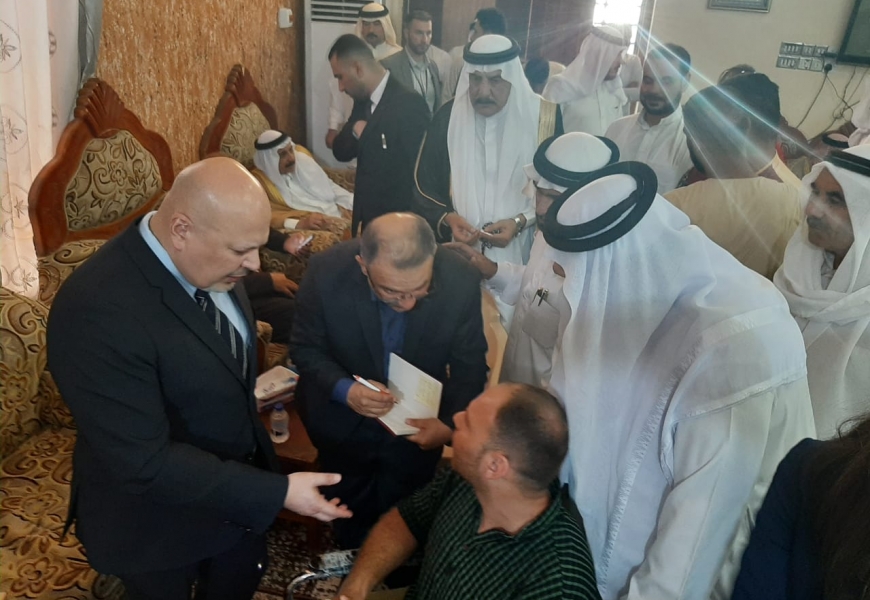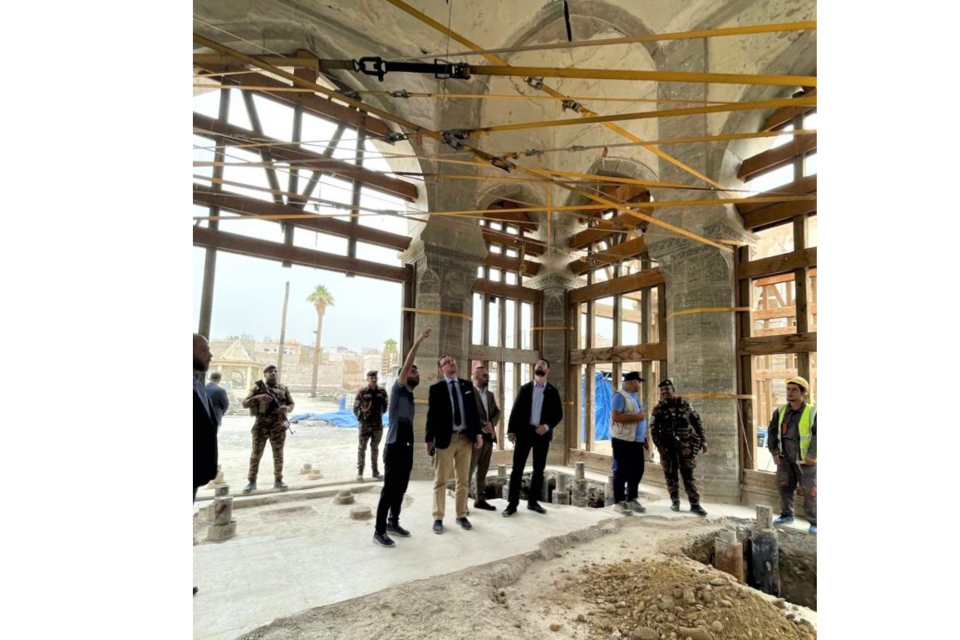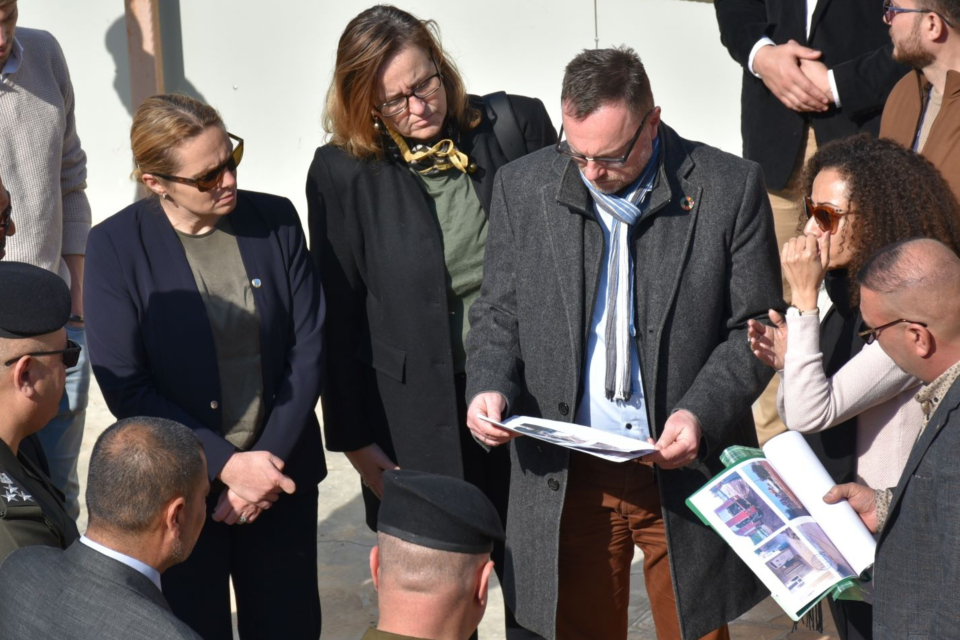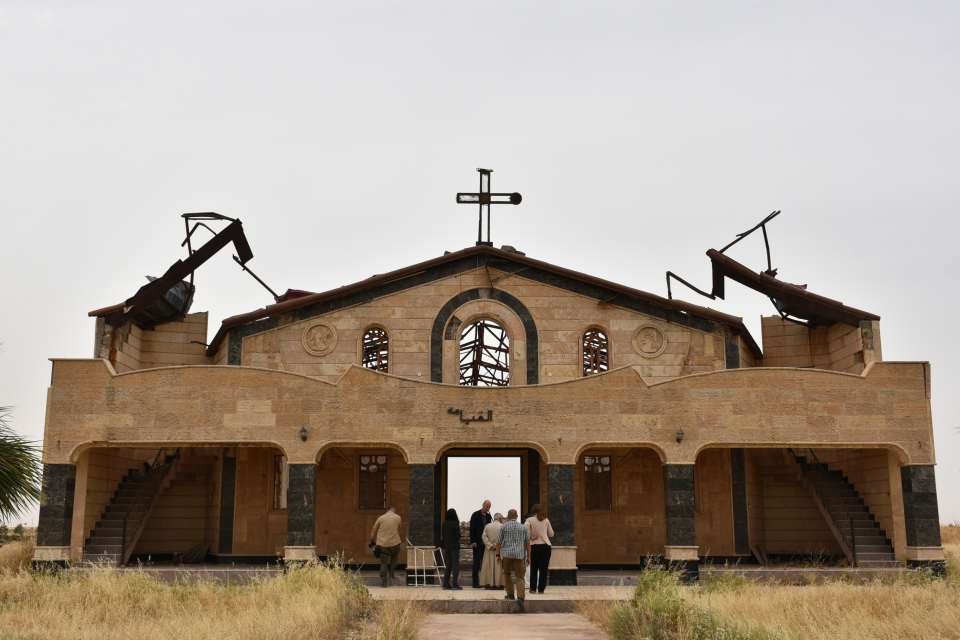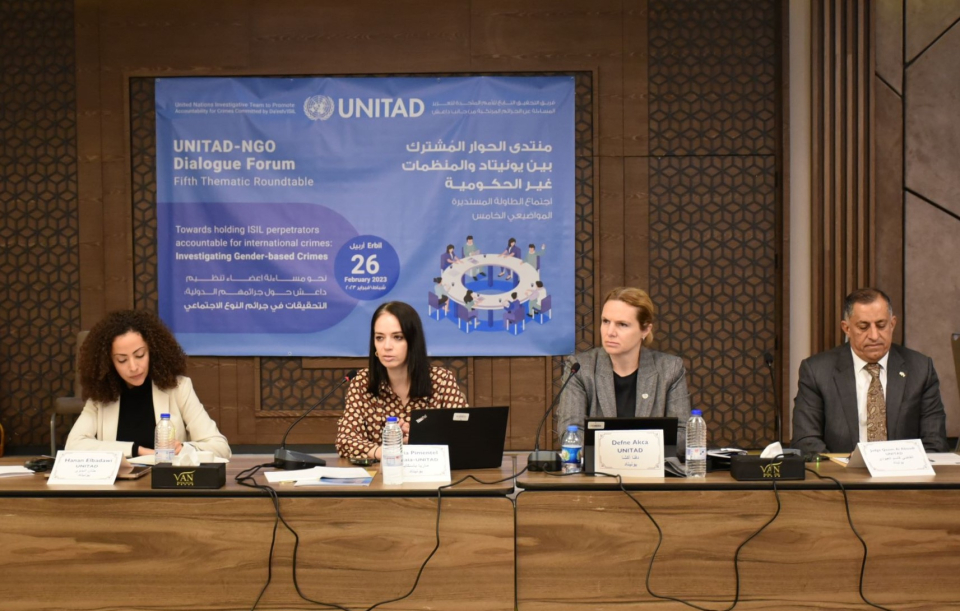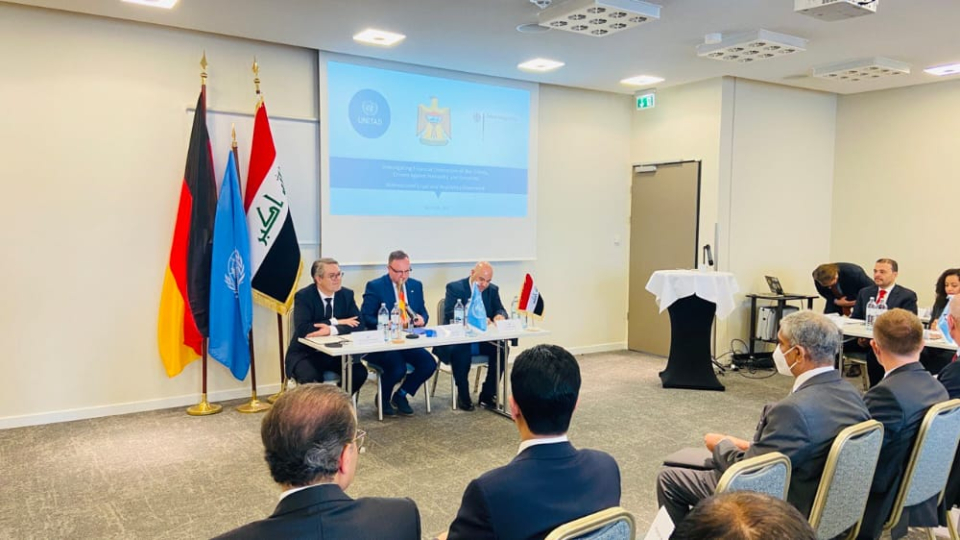Investigations
As an integral part to the Team’s core mandate, investigations are conducted through a rigorous investigative strategy spearheaded by the Office of Field Investigations (OFI).
UNITAD’s OFI conducts its structural investigations through 6 Field Investigative Units (FIUs) that cover ISIL crimes against all affected communities in Iraq, including the Yazidi, Christian, Shia, Turkmen, Kaka’i, Shabak, and Sunni communities. Investigations are conducted based on the principle of no hierarchy of victims, and through trauma-informed and victim-centered approaches.
Additionally, the Team pursues two cross-cutting thematic lines of investigation into ISIL’s crimes against women and children, as well as ISIL’s economic crimes and financial structures, through two dedicated thematic units within OFI.
The main lines of investigation conducted by the Team include:
Investigating ISIL Crimes against all affected communities in Iraq
Yazidi community
Under this line of investigation, the Team has focused on investigating ISIL’s crimes against the Yazidi community, announcing, in May of 2021, that the Team has found clear and convincing evidence to legally qualify the crimes committed against the Yazidi community in Sinjar as genocide.
The Team has supported Iraqi authorities in the excavation of 37 mass grave sites of Yazidi ISIL victims and supported the return of over 180 victims. Additionally, the Team has identified over 100 Yazidi heritage sites destroyed by ISIL. In 2021 UNITAD produced a video on the Crimes of ISIL against the Yazidi Community in Sinjar, and was able to produce a preliminary case-file on the crimes against Yazidis.
Christian community
UNITAD investigates atrocities against the Christian community amounting to international crimes, through analyzing documentary evidence, in addition to witness testimonies with victims and survivors, community leaders, and other stakeholders. This investigation also looks into destruction of Christian cultural heritage and churches.
Shia community
UNITAD investigates the crimes against the Shia community in Iraq through some of its core lines of investigations into multiple attacks in several locations including Badush, Tikrit, Mosul, and Taza Khurmatu. These atrocious crimes in which ISIL specifically targeted the Shia in Iraq, may indicate a pattern reflecting ISIL’s genocidal intent against the Shia community; a legal question which the Team aimed to further investigate.
Investigating Tikrit Air Academy (Camp Speicher) Massacre
This core line of investigation covers the crimes committed by Da’esh/ISIL in Tikrit, Al-Alam and surrounding areas between June 2014 and March 2015, including the mass killing of Tikrit Air Academy (Camp Speicher) personnel in June 2014.
UNITAD has concluded that the mass killing of Tikrit Air Academy personnel amounts to four categories of war crimes (murder, torture, cruel treatment and outrages upon personal dignity) and that the publication of Da’esh/ISIL videos related to these attacks may amount to the crime of direct and public incitement to commit genocide against Shia Muslims.
In June 2022, UNITAD published a video on the investigations into the Tikrit Air Academy Massacre.
In June 2024, UNITAD published a milestone report titled: "Camp Speicher: A Pattern of Mass Killing and Genocidal Intent"
Investigating ISIL’s attack on Badush Prison
The Team has investigated Da’esh/ISIL’s attack on Badush Prison of 10 June 2014 where Da’esh/ISIL separated the Shia prisoners at several execution sites before mass shooting them. Investigative findings concluded that approximately 1000 Shia prisoners were executed as a result.
Through investigation and support to mass grave excavations, approximately 600 bodies were exhumed and a number of remains were returned to their families in 2023 for proper burial, while the rest are pending DNA analysis and identification. Other secondary and smaller related mass graves were identified and are yet to be excavated.
Kaka’i, Shabak and Turkmen communities
UNITAD has investigated crimes committed by Da’esh/ISIL against the Kaka’i, Shabak and Turkmen communities in Iraq, including specific attacks against cultural heritage sites and campaigns of killing and enforced disappearance specifically targeting those communities. This includes intensified investigations into ISIL’s crimes against Shia Turkmen women, and advanced investigations into forced displacement as well as looting and use of explosives, including booby-traps against Kakai community.
Sunni community
This line of investigations include the targeting of tribes who have refused to pledge allegiance or have fought against Da’esh/ISIL, whom Da’esh/ISIL declared apostates (murtaddin); the crimes committed against members of the Iraqi Security Forces (ISF), as well as against member of the Sahwa (awakening) forces and their families, crimes committed against the civilian population in al-Anbar (notably Hiit and surrounding areas, Ramadi and surroundings, and Western Anbar); and the destruction of Sunni cultural heritage sites.
Investigating Crimes committed in and around Mosul
UNITAD enhanced its investigations into crimes committed by Da’esh/ISIL during its control of Mosul, with the aim of completing assessments on Da’esh/ISIL leadership and hierarchical structure in both Mosul and in Tall Afar, and the range of crimes that were committed in the so called capital of the ISIL caliphate in Iraq.
Investigating the development and use of chemical weapons by Da’esh/ISIL
UNITAD’s investigations into Da’esh/ISIL’s development and use of chemical weapons in Iraq include the development, research and weaponization of chemical agents, as well as deployment of chemical weapons by Da’esh/ISIL in their attack against the civilian population in Iraq and against military forces fighting Da’esh/ISIL between 2014-2017.
Marking a significant milestone, UNITAD presented to the Iraqi judiciary, a comprehensive report in October 2023, documenting the terrors unleashed by ISIL's chemical weapons attack on Taza Khurmatu of 8 March 2016, which specifically targeted the residents of this town, the majority of whom were Shia Turkmen.
ISIL’s destruction of cultural and religious heritage
UNITAD investigates the destruction of cultural and religious sites by Da’esh/ISIL in Iraq, adopting an inclusive approach that covers both religious and non-religious sites of all affected communities in Iraq.
Analysis of key evidence delved into Da’esh/ISIL leadership and hierarchical structure that further indicated the deliberate intent to target cultural and religious sites, where religious and cultural sites were either intentionally destroyed or taken over and occupied by ISIL, sometimes for logistics, military, or administrative purposes, which resulted in their severe damage.
Investigating Crimes against Women and Children
Through a dedicated thematic investigative unit, Gender Crimes and Crimes against Children (GCU), UNITAD investigators aim to document and gather evidence regarding all forms of sexual violence, all ISIL crimes against children, and other related crimes, covering all affected communities in Iraq. This includes investigating sexual slavery, assault, rape, and forced marriages inflicted on women and girls, conscription and enlistment of boys under 15, as well as persecution on the basis of gender.
In December 2023, the Team published a report on the sexual violence committed by ISIL in Iraq against women and girls during the years 2014-2017.
Investigating ISIL’s economic structures and financial crimes
Through a dedicated thematic investigative unit, the Economic Crimes Unit (ECU), UNITAD investigates ISIL/Da’esh financial crimes and looks into the structure of the organization’s economy, focusing on Da’esh/ISIL’s financial and command structure and how it supported the war effort and the commission of international crimes.
Some lines of inquiry have focused on the financial networks that allowed ISIL to move funds within and outside Iraq, the analysis of some of ISIL’s departments involved in the management of funds, and the Department of Soldiers (Diwan al-Jund).
As a part of this investigation, in February 2024, the Team handed over a case assessment report to the Iraqi Judiciary on the structure of ISIL's Treasury Diwan Bayt Al Mal.


